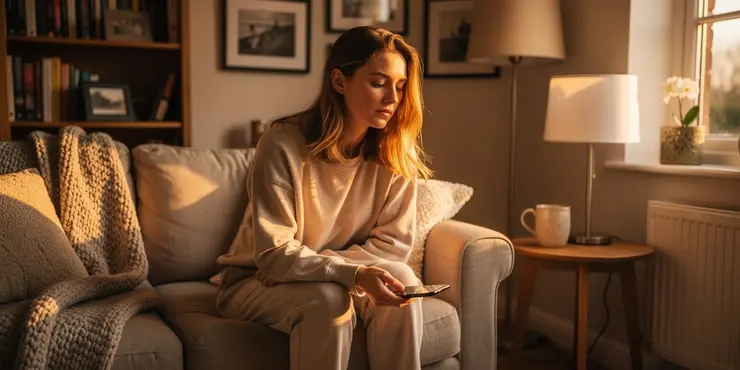
Find Help
More Items From Ergsy search
-
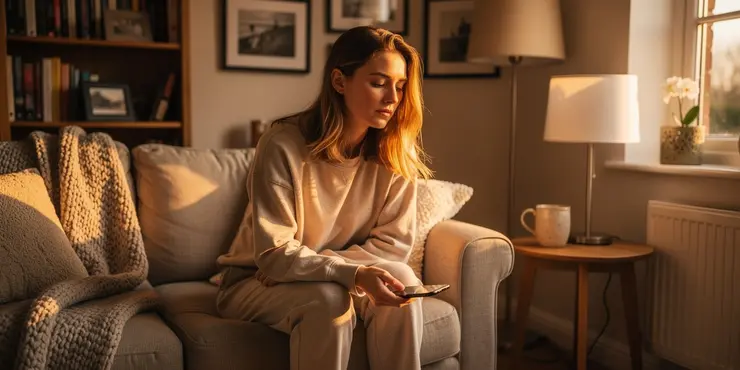
Can reducing screen time improve sleep quality?
Relevance: 100%
-
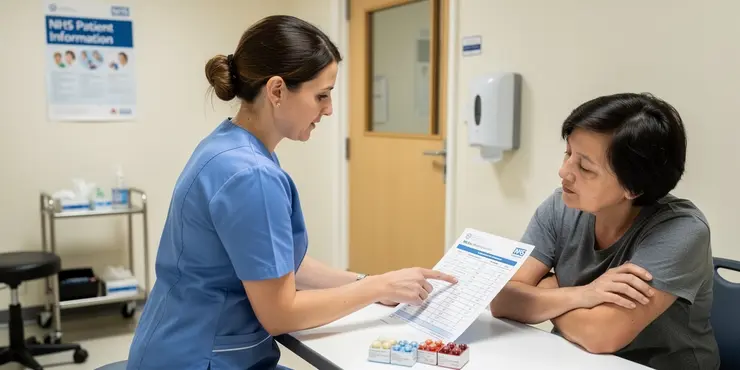
What are some tips for reducing screen time to improve sleep?
Relevance: 81%
-
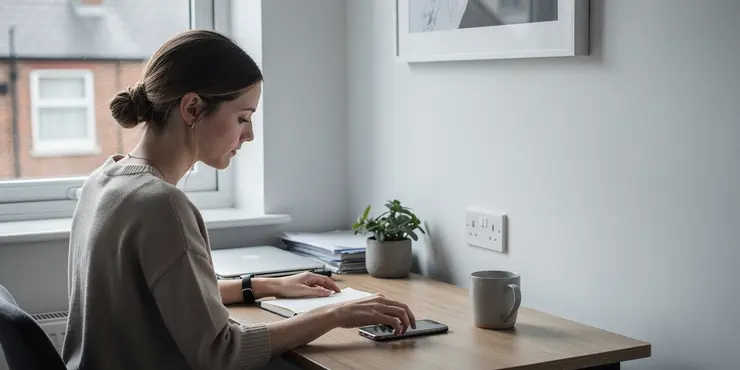
How does screen time affect sleep quality?
Relevance: 77%
-
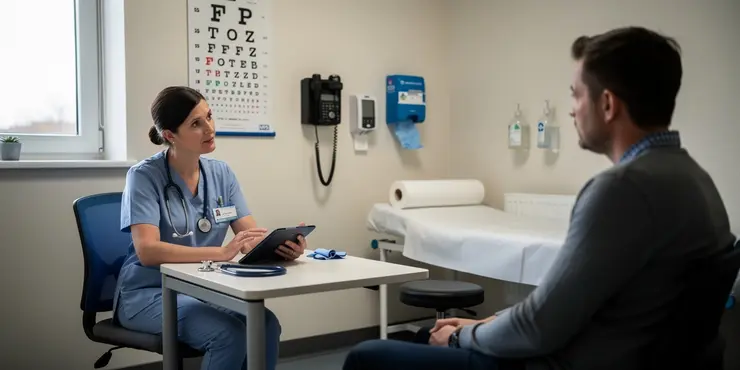
Study Shows Link Between Screen Time and Sleep Quality
Relevance: 75%
-
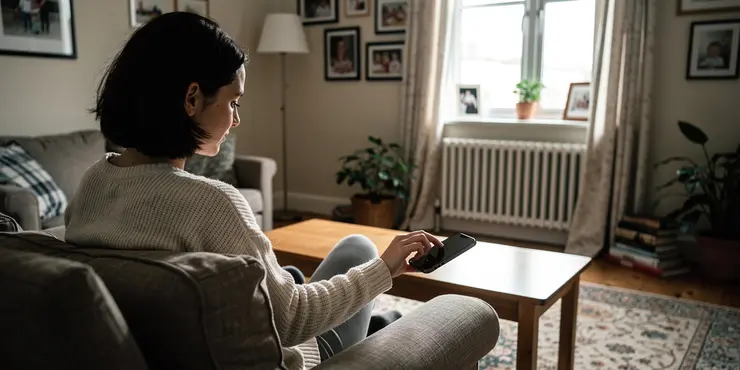
Are there any screen time guidelines recommended for improving sleep?
Relevance: 73%
-
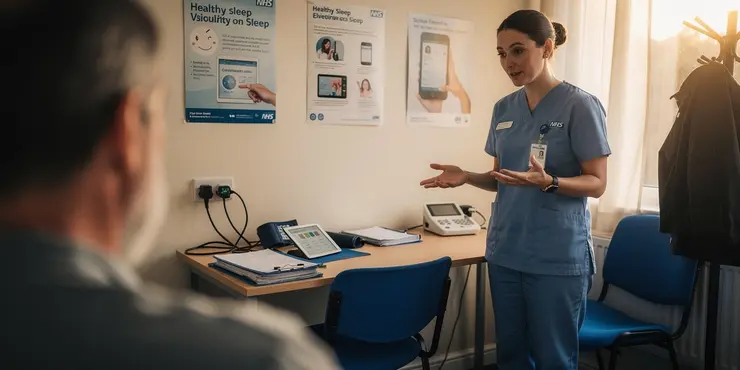
What is the main finding of the study linking screen time to sleep quality?
Relevance: 72%
-
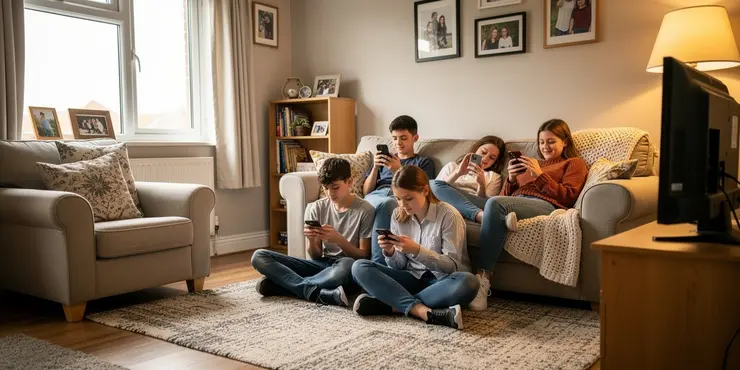
What demographic showed the most significant change in sleep quality due to screen time?
Relevance: 68%
-
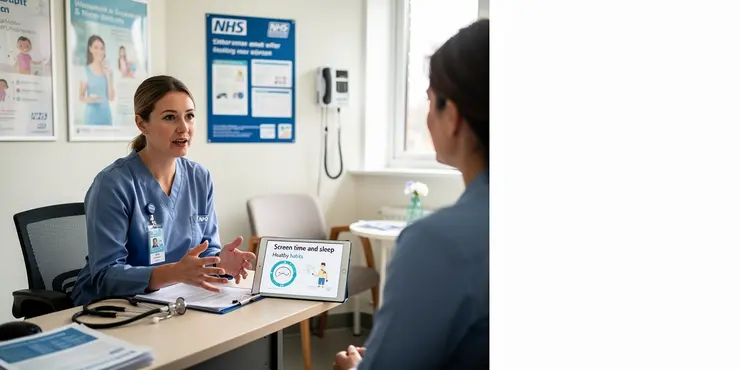
Does screen time impact REM sleep?
Relevance: 65%
-
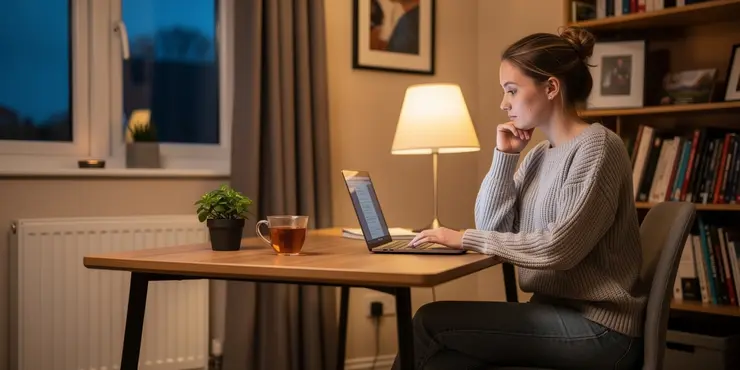
Is blue light from screens a factor in affecting sleep quality?
Relevance: 63%
-
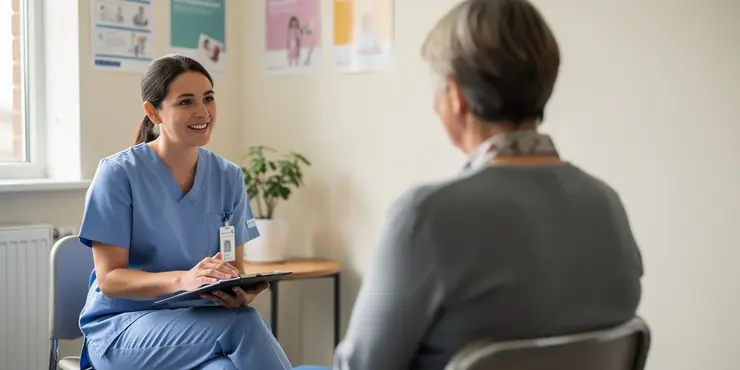
Does screen time affect both sleep onset and sleep maintenance?
Relevance: 62%
-
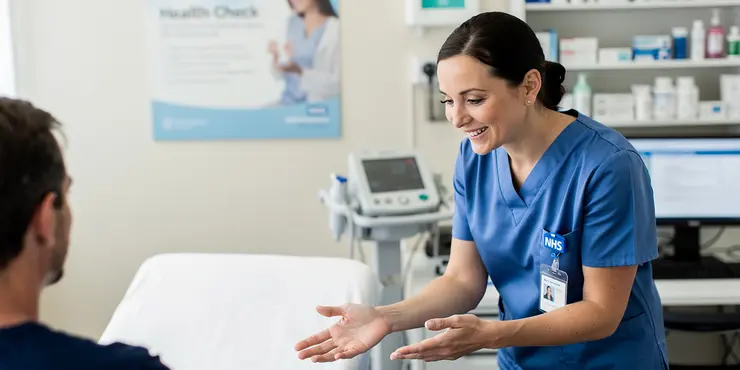
Is there a difference in screen time impact on sleep between weekdays and weekends?
Relevance: 61%
-
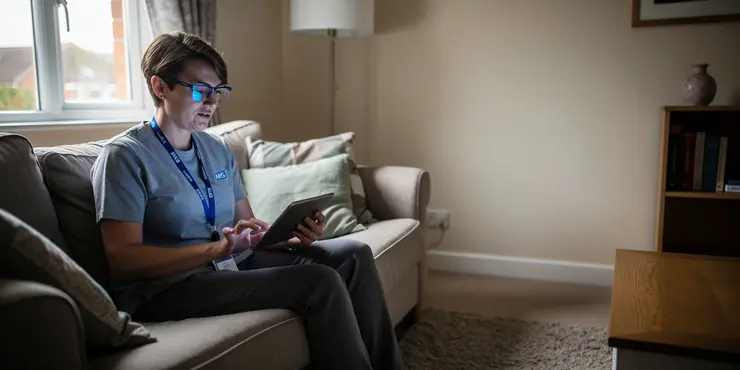
Do mitigation strategies like blue light glasses help improve sleep quality?
Relevance: 61%
-
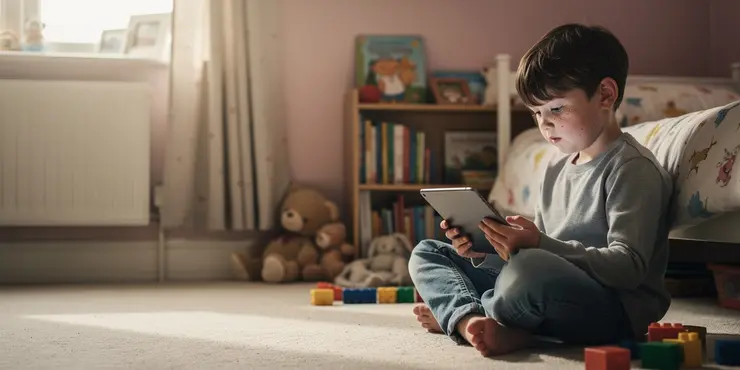
Are children more affected by screen time in relation to sleep than adults?
Relevance: 57%
-
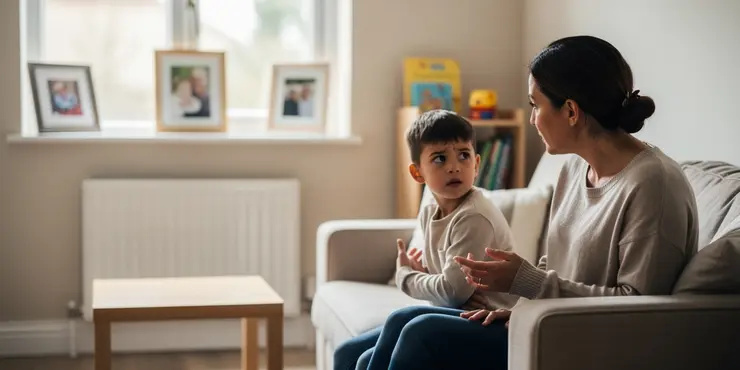
What is the role of parental monitoring in children's screen time and sleep?
Relevance: 50%
-
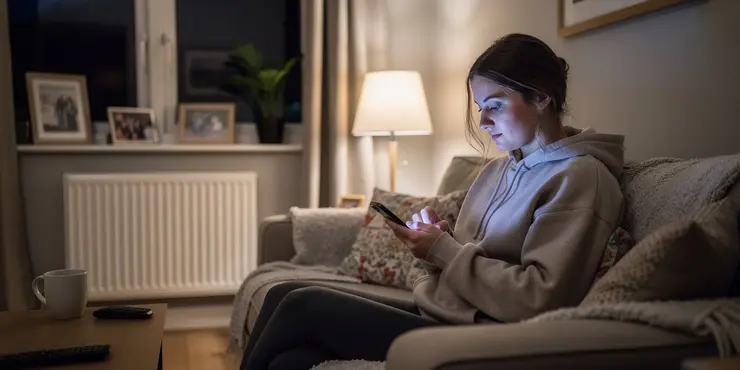
What are some long-term effects of poor sleep quality linked to screen time?
Relevance: 50%
-
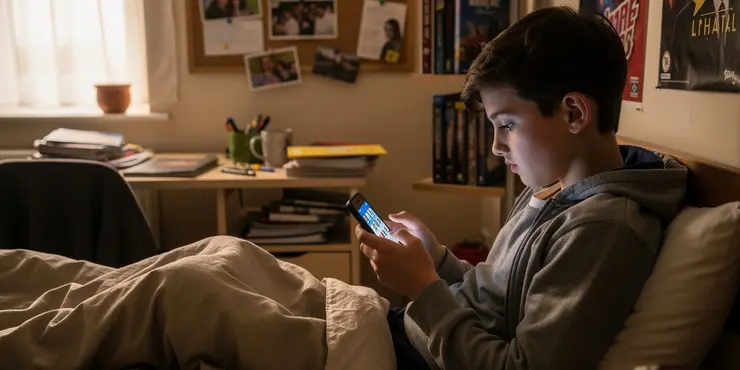
How does screen time before bed specifically affect adolescents?
Relevance: 49%
-
How does sleep quality relate to menopause symptoms?
Relevance: 48%
-
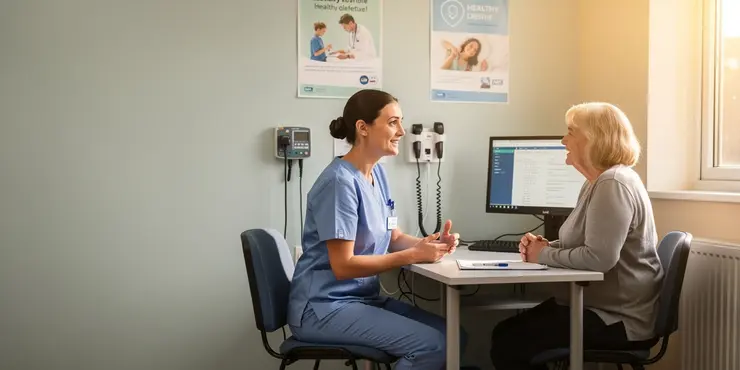
Can weight loss improve sleep apnea?
Relevance: 42%
-
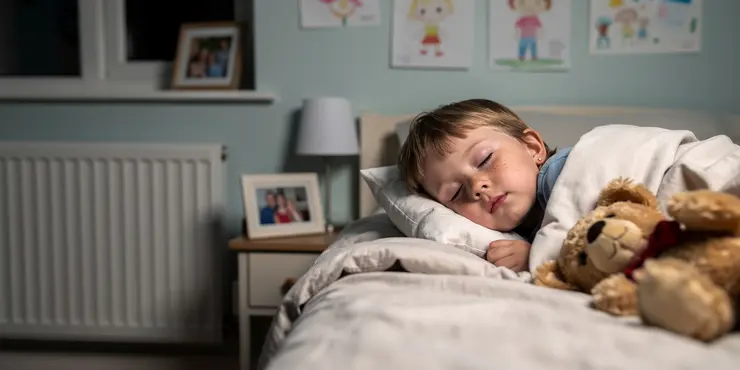
The Importance of Sleep for All Ages
Relevance: 36%
-

Can AI systems reduce the rate of false positives in lung cancer screening?
Relevance: 35%
-
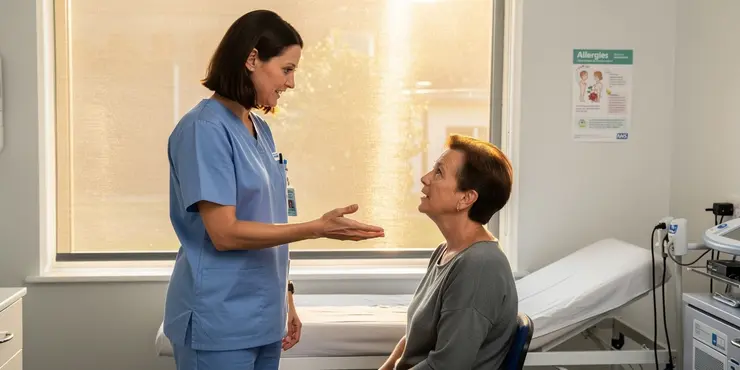
Can mosquito screens help reduce hay fever symptoms?
Relevance: 34%
-
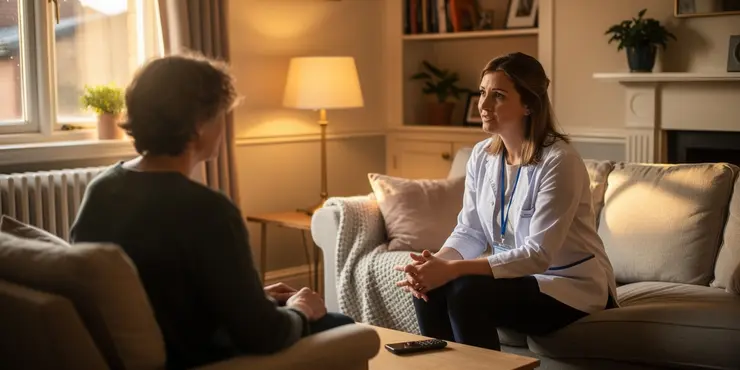
Top Tips to Help You Get a Good Nights Sleep
Relevance: 34%
-
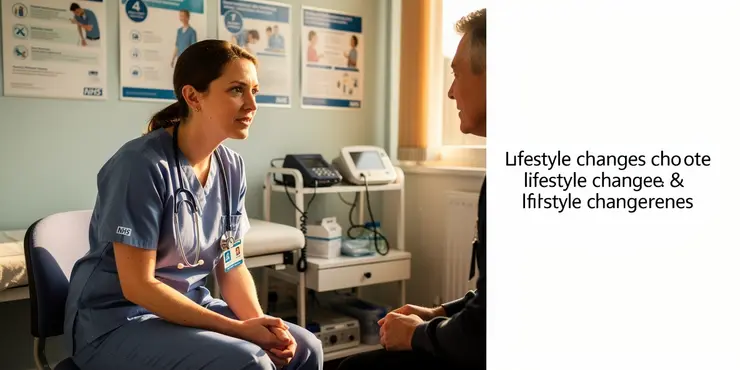
What lifestyle changes can help manage sleep apnea?
Relevance: 33%
-
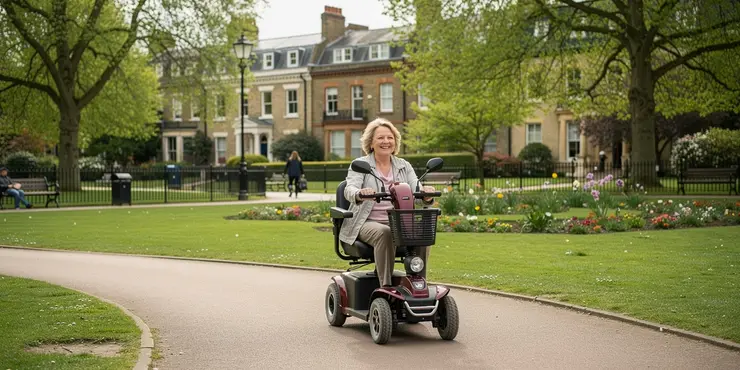
How can mobility equipment improve quality of life?
Relevance: 32%
-
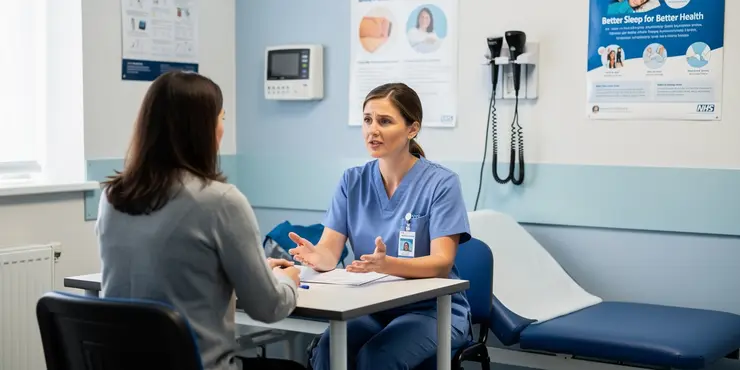
Can alcohol worsen sleep apnea?
Relevance: 32%
-
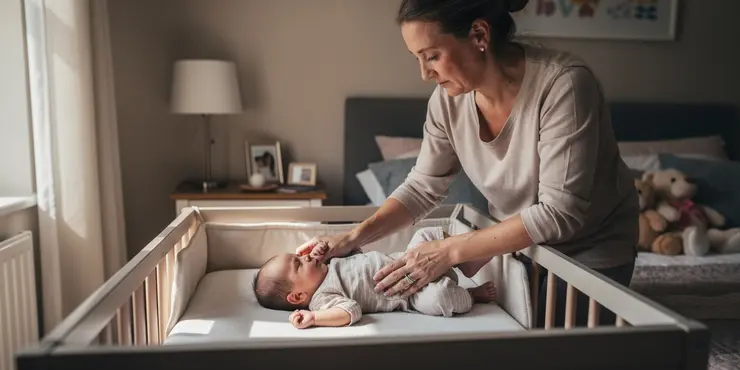
Safe sleeping and reducing the risk of Sudden Infant Death Syndrome (SIDS)
Relevance: 31%
-
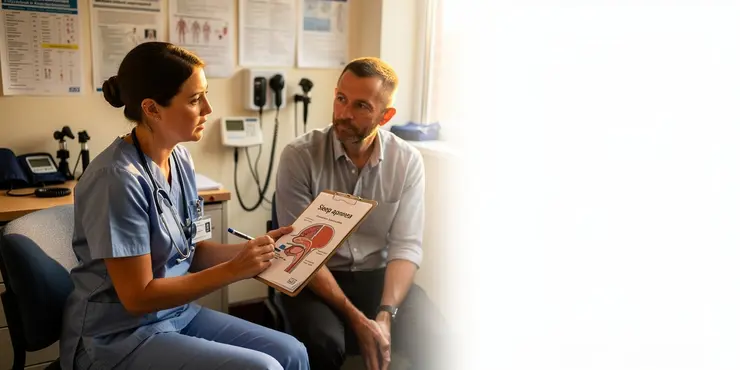
What is sleep apnoea?
Relevance: 30%
-
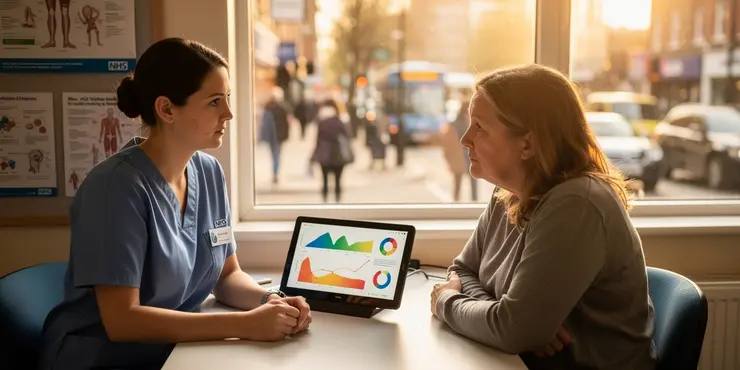
Is UK air quality changing?
Relevance: 30%
-
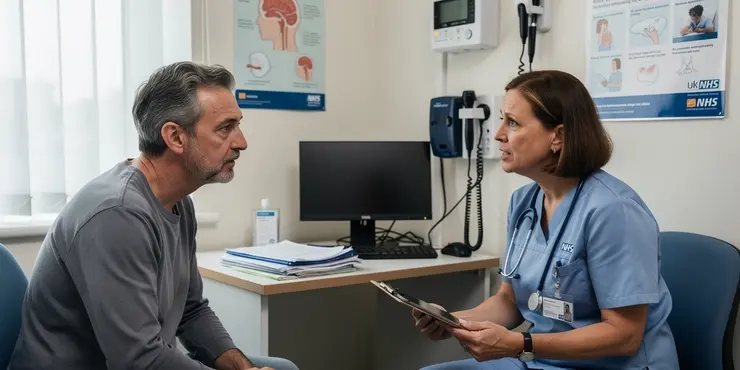
What is sleep apnea?
Relevance: 30%
-
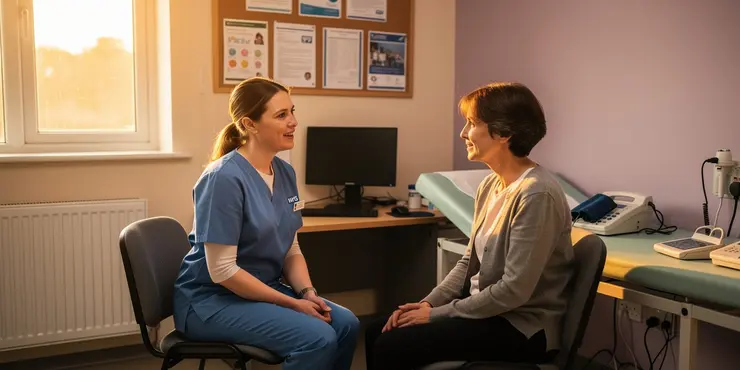
Why is sleep apnea dangerous?
Relevance: 30%
-
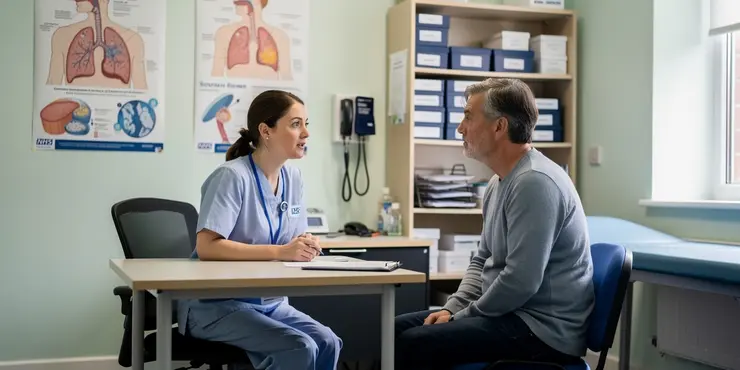
Is snoring always a sign of sleep apnea?
Relevance: 29%
-
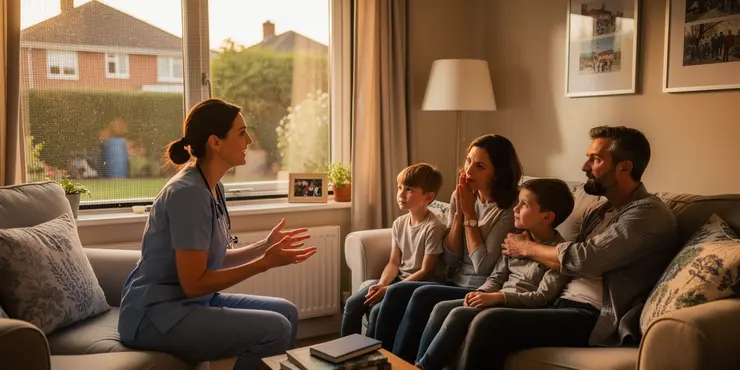
Are mosquito window screens effective in the UK?
Relevance: 29%
-
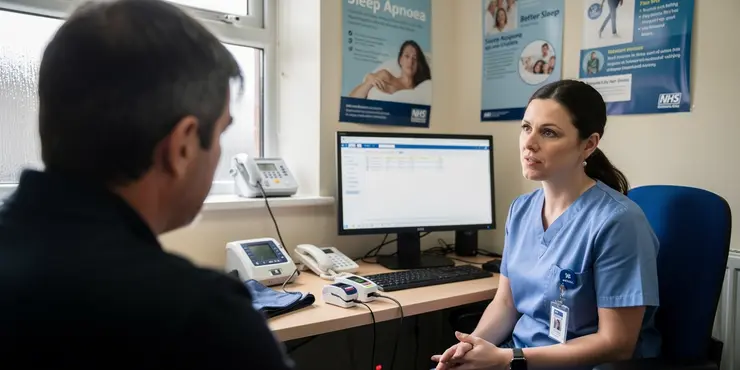
How common is sleep apnea?
Relevance: 29%
-
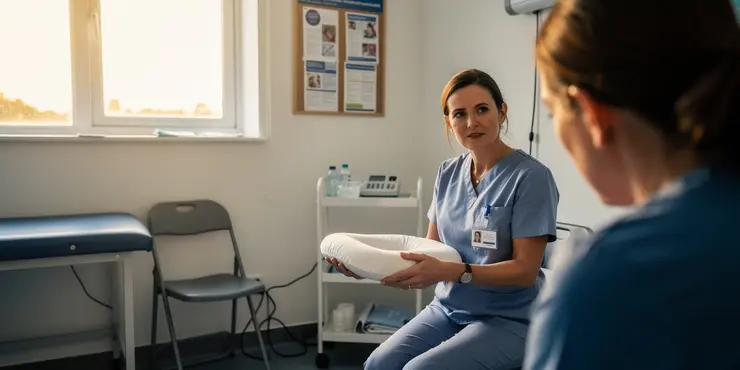
Are there any benefits to using baby sleep pillows?
Relevance: 29%
-
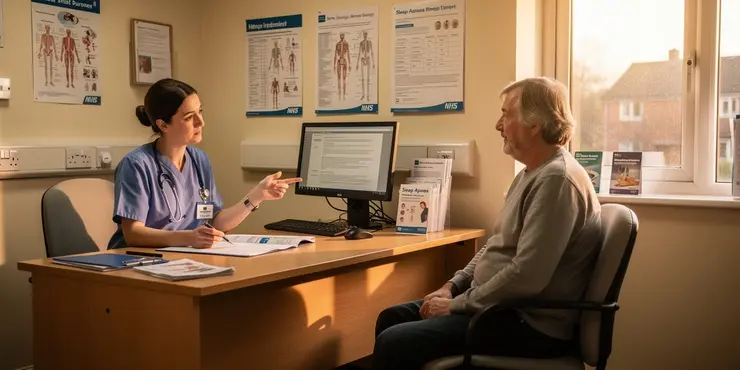
What treatments are available for sleep apnea?
Relevance: 29%
-
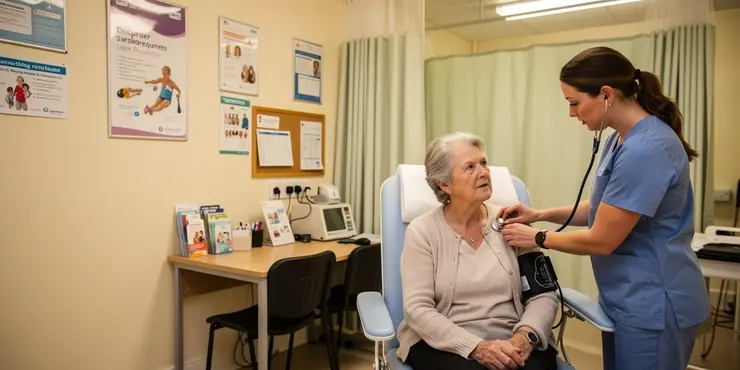
Is it safe to sleep after a concussion?
Relevance: 28%
-
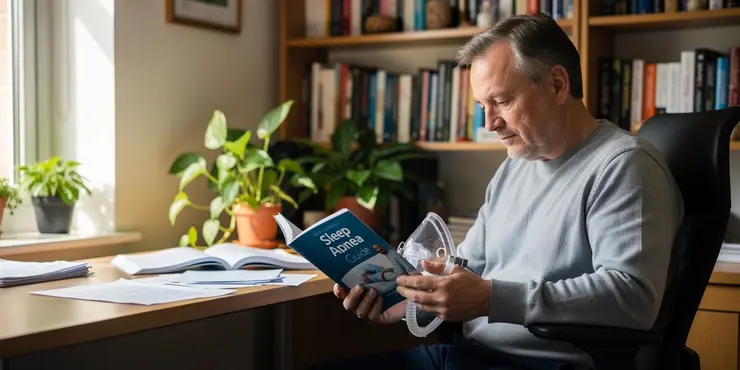
What is complex sleep apnea syndrome?
Relevance: 28%
-
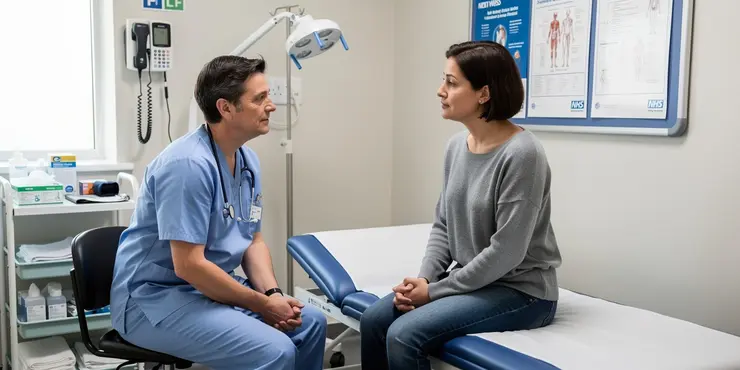
What should I do if I suspect I have sleep apnea?
Relevance: 28%
-
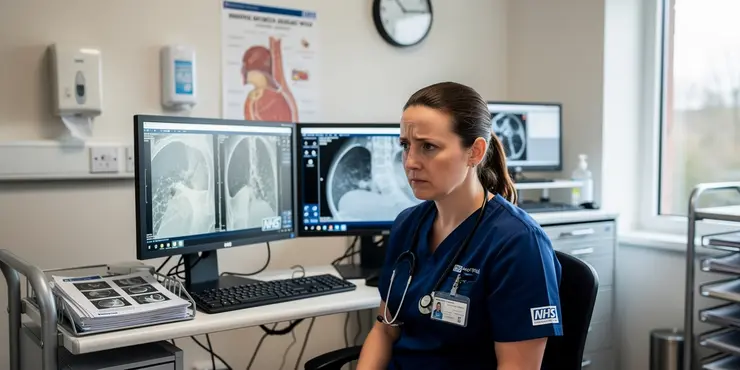
AI Breast Cancer Screening in the UK
Relevance: 28%
-
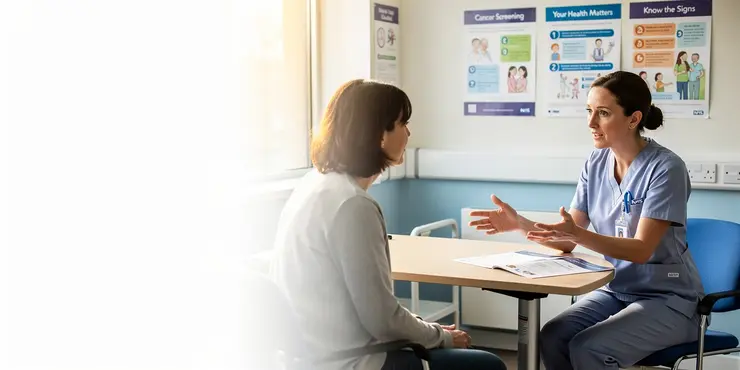
What is cancer screening?
Relevance: 27%
Can Reducing Screen Time Improve Sleep Quality?
In today’s digital age, screens are an integral part of daily life, from work to entertainment. However, increasing evidence suggests that excessive screen time, particularly before bed, can negatively impact sleep quality. For individuals across the UK grappling with sleep issues, understanding the relationship between screen usage and sleep can be crucial in improving sleep hygiene.
The Impact of Screens on Sleep
Electronic devices such as smartphones, tablets, and computers emit blue light, a type of light that can interfere with the body’s natural sleep-wake cycle. The brain associates blue light with daylight, which can suppress the production of melatonin, the hormone responsible for regulating sleep. Consequently, exposure to screens before bedtime can trick the brain into staying alert, making it difficult to fall asleep.
Studies on Screen Time and Sleep
Several studies have explored the link between screen time and sleep disturbances. A study conducted by the UK-based Sleep Council found that high amounts of screen exposure are linked to shorter sleep durations and lower sleep quality. Adolescents and young adults, who are often the most frequent users of digital devices, are particularly susceptible. Consistently, other research has indicated that reducing screen time can help align the body’s circadian rhythms, leading to improvements in sleep quality.
Benefits of Reducing Screen Time
Limiting screen time, especially in the hour before bed, can lead to improved sleep quality by allowing melatonin levels to rise, thus promoting drowsiness. By engaging in alternative pre-sleep activities such as reading a book, practising mindfulness, or listening to calming music, individuals can enhance their relaxation before bed, creating a more conducive environment for restful sleep. Reduced screen time also minimizes late-night mental stimulation, helping the brain to wind down effectively.
Practical Steps for Reducing Screen Time
For those looking to cut down on screen usage, setting a digital curfew is a practical first step. This involves turning off electronic devices at least an hour before bedtime. Additionally, using features like ‘night mode’ on devices, which reduces blue light emission, can also be beneficial. Encouraging family-wide screen time rules and incorporating activities that don’t involve screens into evening routines can reinforce these habits. For those finding it difficult to switch off, apps that track and limit screen time may offer valuable assistance.
Conclusion
Reducing screen time is a simple yet effective strategy for improving sleep quality. For residents in the UK experiencing sleep disturbances, making conscious choices about evening screen usage may lead to better rest and overall well-being. While screens will remain a staple in modern life, mindful use can mitigate their impact on sleep, paving the way for healthier sleep patterns and increased daily vitality.
Can Less Screen Time Help You Sleep Better?
Many of us use screens every day. We use them for work and fun. But, too much screen time can make it hard to sleep well. Knowing how screens affect sleep can help people in the UK sleep better.
How Screens Affect Sleep
Phones, tablets, and computers give off blue light. This light can confuse your body. Your brain thinks blue light is daylight. This stops it from making melatonin, a hormone that helps you sleep. So, using screens before bed can keep you awake and make it hard to sleep.
Screen Time and Sleep Studies
Many studies look at screen use and sleep problems. The UK Sleep Council found that lots of screen time means less and worse sleep. Young people, who use screens the most, are affected a lot. Other research shows that cutting screen time can help your body’s sleep cycle, making your sleep better.
Why Cutting Screen Time Helps
Cutting screen time, especially an hour before bed, can help you sleep better. It lets melatonin do its job, making you sleepy. Doing things like reading, relaxing, or listening to calm music before bed can help you unwind. Less screen time also reduces how much your mind races at night, helping you relax more easily.
Ways to Cut Down Screen Time
If you want to use screens less, try setting a time to stop using them at least an hour before bed. You can use "night mode" on your devices to reduce blue light. Families can make rules to help everyone use screens less in the evening. Doing activities without screens can also help. If it's hard to stop using screens, try apps that track and reduce your screen time.
Conclusion
Using screens less can be a good way to sleep better. If you live in the UK and have trouble sleeping, changing how you use screens at night might help. Screens are a big part of life, but using them wisely can mean better sleep and feeling good every day.
Frequently Asked Questions
Can reducing screen time improve sleep quality?
Yes, reducing screen time can improve sleep quality by minimizing exposure to blue light, which can interfere with the natural sleep cycle.
How does screen time affect sleep quality?
Screen time before bed exposes you to blue light, which can suppress melatonin production, making it harder to fall asleep and affecting overall sleep quality.
What is the impact of blue light on sleep?
Blue light can disrupt the body's natural circadian rhythm by reducing melatonin levels, leading to difficulty falling asleep and poorer sleep quality.
How long before bed should I reduce screen time?
It's recommended to cut down screen time at least 1 to 2 hours before bedtime to help improve sleep quality.
Does using night mode on devices help with sleep quality?
Using night mode or blue light filters on devices may help reduce the impact of blue light on sleep, but it's still best to limit screen time before bed.
Can reading on a screen before bed affect sleep?
Yes, reading on a screen before bed can still expose you to blue light, potentially affecting melatonin production and sleep quality.
What are other ways to improve sleep quality besides reducing screen time?
Other ways to improve sleep quality include maintaining a regular sleep schedule, creating a comfortable sleep environment, and avoiding caffeine and heavy meals before bedtime.
Is it better to read a physical book than an e-book before bed?
Yes, reading a physical book is better as it does not emit blue light, allowing for a more natural wind-down before sleep.
Does exposure to screens affect children's sleep differently than adults?
Yes, children may be more sensitive to the effects of screen time on sleep, making it important to monitor their screen exposure, especially before bed.
What is melatonin and how is it related to sleep?
Melatonin is a hormone that regulates sleep-wake cycles. It promotes sleep by signaling to the body that it is time to rest.
Can screen time during the day affect sleep quality at night?
Excessive screen time during the day can lead to prolonged exposure to blue light and increased mental stimulation, potentially affecting sleep quality at night.
How does reducing screen time benefit mental health?
Reducing screen time can help improve mental health by reducing eye strain, decreasing anxiety or stress related to constant connectivity, and improving sleep quality, which is important for overall mental well-being.
Are there any apps that help reduce screen time before bed?
Yes, there are apps available that can limit screen time or filter blue light, such as f.lux or nighttime modes on smartphones.
Is it effective to use a blue light blocking screen protector?
Blue light blocking screen protectors can reduce blue light exposure from screens, which might help improve sleep quality if screen time before bed is unavoidable.
How can screen time affect sleep architecture?
Screen time, especially blue light exposure, can alter sleep architecture by affecting REM sleep and the time it takes to enter different sleep stages, thus impacting overall sleep efficiency.
What alternatives to screen-based activities are good before bed?
Good alternatives include reading a physical book, meditating, or listening to calming music, which can help the body transition to sleep more effectively.
Why is it hard to put away screens before bed?
Screens provide continuous engagement and stimulation, making it psychologically challenging to disengage, especially with content that encourages scrolling or interaction.
Can reducing screen time improve overall well-being?
Yes, reducing screen time can lead to better sleep quality, which is linked to improved mood, concentration, and overall physical and mental health.
Does screen time reduction have immediate effects on sleep?
While some people may notice improvements quickly, for others it may take a few days or weeks of reduced exposure to screens before significant sleep improvements are observed.
What's a healthy amount of screen time to have daily?
Experts often recommend limiting recreational screen time to no more than 2 hours per day, though specific needs can vary based on age, occupation, and individual health considerations.
Can watching less screen help us sleep better?
Yes, spending less time looking at screens can help you sleep better. This is because screens give off blue light, which can make it harder to sleep well.
How does watching screens affect sleep?
Using screens like phones, tablets, or TVs can make it harder to sleep well.
Here are some ways screens can affect sleep:
- Bright screens can trick your brain into thinking it's daytime.
- Using screens right before bed can keep you awake.
- Watching exciting or scary things can make it hard to relax.
Here are some tips to help you sleep better:
- Try to stop using screens one hour before bed.
- Read a book or listen to calming music instead.
- Use apps that make the screen light softer at night.
Watching screens before bed can make it hard to sleep. The blue light from screens stops your body from making a sleep hormone called melatonin. This can make it hard to fall asleep and you might not sleep as well.
How does blue light affect sleep?
Blue light can make it hard for our body to know when to sleep.
It does this by lowering melatonin. Melatonin helps us sleep.
If you see a lot of blue light, you might find it hard to fall asleep and not sleep well.
When should I stop looking at screens before bed?
Try to stop looking at screens like TV, phones, or tablets an hour before you go to sleep. This can help your brain relax and make it easier to sleep.
You can use tools like a screen reader or a blue light filter to help your eyes feel better if you use screens at night.
Try to stop using screens, like phones and tablets, 1 to 2 hours before you go to sleep. This can help you sleep better.
Does using night mode on devices help with sleep quality?
Do you use a phone or tablet before bed? Night mode makes the screen dim and less blue. This can help you sleep better.
Try to use night mode a few hours before sleep. You might find it easier to fall asleep and have a good night's rest.
You can also try other things to help with sleep, like:
- Reading a book
- Listening to calming music
- Meditating
- Avoiding caffeine
Using night mode or a blue light filter on your phone or tablet might help with sleep. But it is a good idea to stop using screens before bedtime.
Does looking at a screen before bed change how you sleep?
Yes, looking at a screen before bed can show you blue light. This can make it harder to sleep because it stops your body from making enough melatonin. Melatonin helps you sleep.
How else can you sleep better without using screens less?
Here are some simple ways to sleep better:
- Go to bed at the same time every night.
- Make your room dark and quiet.
- Try deep breathing exercises.
- Avoid caffeine before bed.
- Listen to calming music or sounds.
If you need help, ask someone you trust or use apps for relaxation and sleep.
Here are some ways to sleep better:
- Go to bed and wake up at the same time every day.
- Make sure your bedroom is comfy and cozy.
- Do not drink coffee or eat big meals before you go to sleep.
Using these ideas can help you sleep well at night. You might also try using a sleep app or listening to calm music before bed.
Is it better to read a real book or an e-book before sleep?
It is good to read paper books because they do not have blue light. This makes it easier to calm down before going to sleep.
Do screens change how kids sleep compared to adults?
Using screens like phones or tablets can change how we sleep. This can be different for kids than for adults.
Things that might help:
- Try using screens less before bedtime. This can help with falling asleep.
- Reading a book instead might make it easier to feel sleepy.
- Turn off screens at night or use special apps that make screens dimmer and less bright.
If it is hard to sleep, talking to a parent or teacher might help.
Yes, children can be more affected by screens when it comes to sleep. It is important to watch how much time they spend on screens, especially before going to bed.
What is melatonin and how does it help you sleep?
Melatonin is something in our bodies that helps us sleep. It tells us when it's time to go to bed and rest.
Does using screens during the day make it hard to sleep at night?
Looking at screens too much during the day can make it hard to sleep well at night. Screens have blue light, and it can keep your brain too busy to relax.
How does less screen time help your brain feel better?
Using screens like phones, tablets, or computers too much can make you feel tired or sad.
Spending less time with screens can help your brain feel happier and more relaxed.
Try to do something fun instead, like playing outside or reading a book. This can help you feel good too!
Spending less time on screens is good for our minds. It helps our eyes feel better. It can make us less worried or stressed because we’re not always connected. It also helps us sleep better. Sleeping well is important for feeling good.
Tools and Tips to Help:
- Use a timer to remind you to take breaks from screens.
- Try apps that reduce blue light on screens, like 'Night Shift' or 'f.lux.'
- Set a bedtime for screens, like no screens one hour before sleep.
- Spend time on hobbies that don’t need a screen, like drawing or playing outside.
Are there apps to help you use screens less before bed?
Yes, some apps can help you use your phone or tablet less at night. Using screens before bed can make it hard to sleep. These apps help by:
- Setting screen time limits.
- Reminding you to take breaks from screens.
- Changing your screen's brightness to make it easier on your eyes.
You can ask an adult to help you download these apps. They can help you set them up, too!
Yes, there are apps that can help with screen time and blue light. Some apps can limit how long you use a screen. Others can change the screen color to be easier on your eyes. You can try f.lux or use nighttime modes on phones.
Do blue light blocking screen protectors work well?
Blue light comes from screens like phones, tablets, and computers.
Some people use a blue light blocking screen protector to help reduce eye strain.
These protectors can help you sleep better by blocking blue light at night.
If you spend a lot of time looking at screens, a blue light filter might be helpful.
Ask an eye doctor if a screen protector is good for you.
You can also try taking breaks from screens and adjusting screen brightness.
Blue light blockers for screens can help block blue light from getting to your eyes. This might help you sleep better if you have to use screens before bed.
How can watching screens affect sleep?
Watching screens, like TVs, phones, or tablets, before bed can make it hard to sleep well. Here is why:
- Blue light: Screens give off a bright light called blue light. This light can tell your brain to stay awake.
- Less deep sleep: Watching screens can make you have less deep sleep. Deep sleep is when your body rests the most.
- Hard to fall asleep: When you watch screens, it can take longer to fall asleep.
Here are some tips to help you sleep better:
- Turn off screens at least one hour before bed.
- Do something relaxing, like reading a book or listening to gentle music.
- Keep your bedroom dark and quiet.
Looking at screens a lot can make it hard to sleep well. Screens have blue light, which can change how we sleep. It can make it harder to get into deep sleep and can stop us from sleeping well.
Try to use tools that help, like turning on night mode on devices. You can also try wearing special glasses that block blue light. Taking screen breaks before bed can help too.
What can you do before bed instead of using screens?
Here are some fun and relaxing things you can do before going to sleep:
- Read a storybook.
- Listen to calm music.
- Draw or color a picture.
- Do some easy stretches.
- Talk with a family member about your day.
- Imagine a happy place in your mind.
These activities can help you feel calm and ready for a good night's sleep.
Here are some good things to do before bed:
- Read a book.
- Do some quiet thinking (meditation).
- Listen to calm music.
These activities can help you get ready to sleep better.
Why is it tough to stop using screens before bed?
Screens like phones, tablets, and TVs can be hard to stop using at night. Here’s why:
- Bright Light: Screens have a bright light. This light can make your brain think it's daytime, so you don't feel sleepy.
- Exciting Stuff: Games, videos, and messages can be very exciting. They keep your mind busy and make it hard to relax.
- Habits: If you often use screens at night, it becomes a habit. Habits can be hard to change.
Here are some tips to help you:
- Set a Time: Decide a time to turn off screens, like 1 hour before bed.
- Read a Book: Try reading a book or listening to calming music instead.
- Use Night Mode: If you have to use a screen, turn on night mode. It makes the light softer.
These ideas can help you sleep better at night.
Screens are very interesting and keep us busy. It can be hard to stop using them, especially if they have things to scroll through or games to play.
Can spending less time on screens make you feel better?
Spending a lot of time on phones, tablets, or computers is called "screen time."
Here are some ways cutting down screen time might help you feel better:
- More sleep: You might sleep better if you use screens less before bed.
- More exercise: With less screen time, you can have more time to play outside or do sports.
- Better moods: Spending time with family or friends instead of screens can make you happier.
Here are some tools to help use screens less:
- Timers or alarms: Set a timer to remind you to take breaks from screens.
- Apps: Some apps can help track your screen time.
- Family rules: Make rules about screen time with your family.
Yes, spending less time on screens can help you sleep better. Sleeping well makes you feel happier and helps you focus. It is also good for your body and mind.
Does cutting down on screen time help you sleep better right away?
Cutting down on screen time means using phones, tablets, and computers less.
This can help you sleep better.
Try to stop using screens at least one hour before bed.
If it’s hard, ask someone to remind you or use an alarm to help you stop.
Reading a book or listening to calming music instead can make you feel sleepy.
Some people might sleep better quickly. For others, it can take a few days or weeks away from screens to sleep better.
How much time is okay to look at screens every day?
It's important to know how long you should look at screens like phones, tablets, or computers each day.
A good rule is to take breaks and do other activities too. Here are some helpful ideas:
- Take short breaks every 20 minutes.
- Play outside or do something active.
- Make time for hobbies that don't use screens, like drawing or reading books.
It's okay to ask an adult for help if you're unsure.
Experts say it's good to spend less than 2 hours a day watching TV, playing games, or using a tablet or phone for fun. But this can change depending on how old you are, your job, and your health needs.
Useful Links
This website offers general information and is not a substitute for professional advice.
Always seek guidance from qualified professionals.
If you have any medical concerns or need urgent help, contact a healthcare professional or emergency services immediately.
Some of this content was generated with AI assistance. We’ve done our best to keep it accurate, helpful, and human-friendly.
- Ergsy carfully checks the information in the videos we provide here.
- Videos shown by Youtube after a video has completed, have NOT been reviewed by ERGSY.
- To view, click the arrow in centre of video.
- Most of the videos you find here will have subtitles and/or closed captions available.
- You may need to turn these on, and choose your preferred language.
- Go to the video you'd like to watch.
- If closed captions (CC) are available, settings will be visible on the bottom right of the video player.
- To turn on Captions, click settings .
- To turn off Captions, click settings again.
More Items From Ergsy search
-

Can reducing screen time improve sleep quality?
Relevance: 100%
-

What are some tips for reducing screen time to improve sleep?
Relevance: 81%
-

How does screen time affect sleep quality?
Relevance: 77%
-

Study Shows Link Between Screen Time and Sleep Quality
Relevance: 75%
-

Are there any screen time guidelines recommended for improving sleep?
Relevance: 73%
-

What is the main finding of the study linking screen time to sleep quality?
Relevance: 72%
-

What demographic showed the most significant change in sleep quality due to screen time?
Relevance: 68%
-

Does screen time impact REM sleep?
Relevance: 65%
-

Is blue light from screens a factor in affecting sleep quality?
Relevance: 63%
-

Does screen time affect both sleep onset and sleep maintenance?
Relevance: 62%
-

Is there a difference in screen time impact on sleep between weekdays and weekends?
Relevance: 61%
-

Do mitigation strategies like blue light glasses help improve sleep quality?
Relevance: 61%
-

Are children more affected by screen time in relation to sleep than adults?
Relevance: 57%
-

What is the role of parental monitoring in children's screen time and sleep?
Relevance: 50%
-

What are some long-term effects of poor sleep quality linked to screen time?
Relevance: 50%
-

How does screen time before bed specifically affect adolescents?
Relevance: 49%
-
How does sleep quality relate to menopause symptoms?
Relevance: 48%
-

Can weight loss improve sleep apnea?
Relevance: 42%
-

The Importance of Sleep for All Ages
Relevance: 36%
-

Can AI systems reduce the rate of false positives in lung cancer screening?
Relevance: 35%
-

Can mosquito screens help reduce hay fever symptoms?
Relevance: 34%
-

Top Tips to Help You Get a Good Nights Sleep
Relevance: 34%
-

What lifestyle changes can help manage sleep apnea?
Relevance: 33%
-

How can mobility equipment improve quality of life?
Relevance: 32%
-

Can alcohol worsen sleep apnea?
Relevance: 32%
-

Safe sleeping and reducing the risk of Sudden Infant Death Syndrome (SIDS)
Relevance: 31%
-

What is sleep apnoea?
Relevance: 30%
-

Is UK air quality changing?
Relevance: 30%
-

What is sleep apnea?
Relevance: 30%
-

Why is sleep apnea dangerous?
Relevance: 30%
-

Is snoring always a sign of sleep apnea?
Relevance: 29%
-

Are mosquito window screens effective in the UK?
Relevance: 29%
-

How common is sleep apnea?
Relevance: 29%
-

Are there any benefits to using baby sleep pillows?
Relevance: 29%
-

What treatments are available for sleep apnea?
Relevance: 29%
-

Is it safe to sleep after a concussion?
Relevance: 28%
-

What is complex sleep apnea syndrome?
Relevance: 28%
-

What should I do if I suspect I have sleep apnea?
Relevance: 28%
-

AI Breast Cancer Screening in the UK
Relevance: 28%
-

What is cancer screening?
Relevance: 27%


